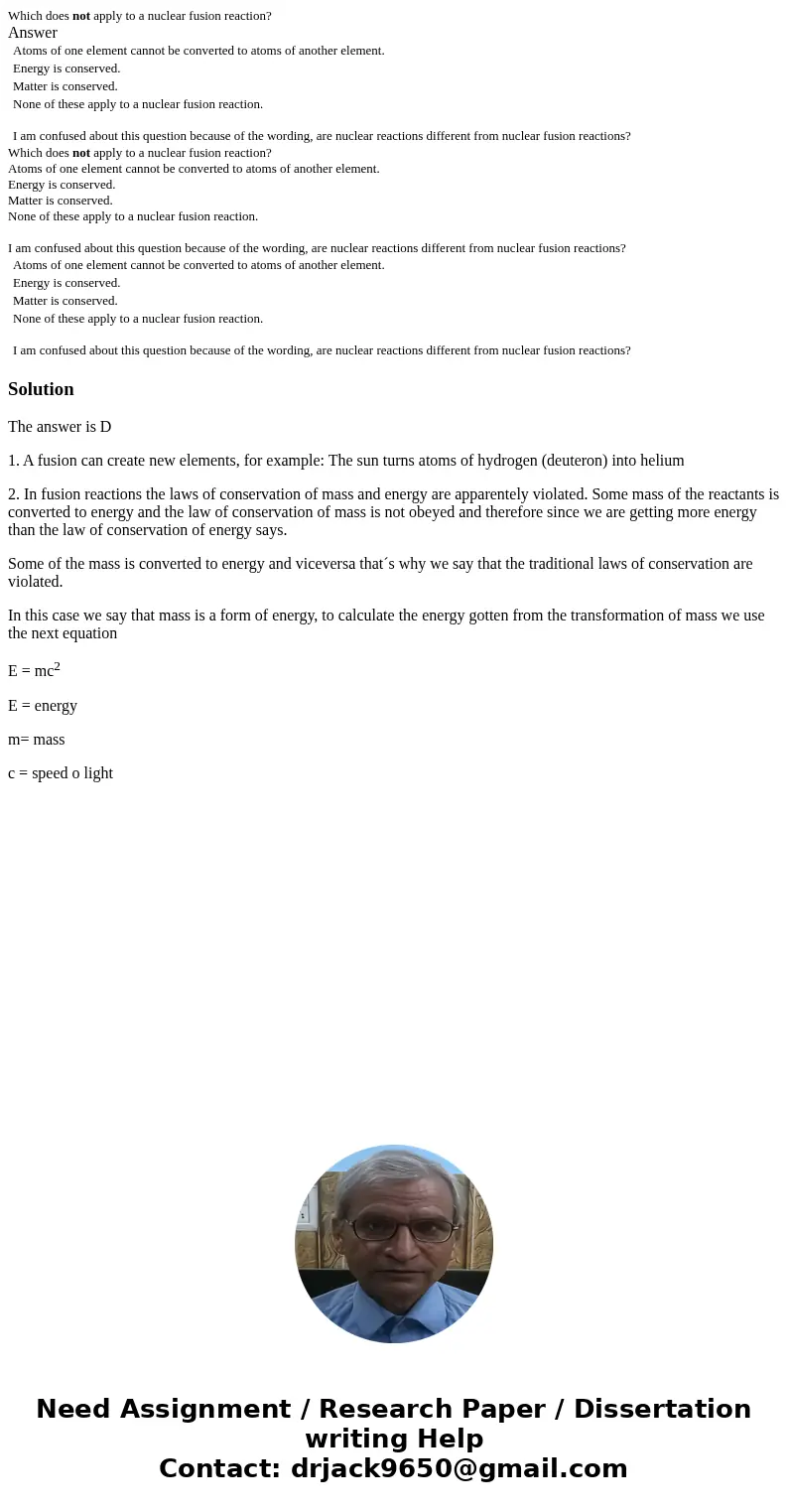Which does not apply to a nuclear fusion reaction Answer Ato
Which does not apply to a nuclear fusion reaction?
Answer | Atoms of one element cannot be converted to atoms of another element. | ||
| Energy is conserved. | ||
| Matter is conserved. | ||
| None of these apply to a nuclear fusion reaction. I am confused about this question because of the wording, are nuclear reactions different from nuclear fusion reactions? |
Which does not apply to a nuclear fusion reaction?
Atoms of one element cannot be converted to atoms of another element.
Energy is conserved.
Matter is conserved.
None of these apply to a nuclear fusion reaction.
I am confused about this question because of the wording, are nuclear reactions different from nuclear fusion reactions?
I am confused about this question because of the wording, are nuclear reactions different from nuclear fusion reactions?
| Atoms of one element cannot be converted to atoms of another element. | ||
| Energy is conserved. | ||
| Matter is conserved. | ||
| None of these apply to a nuclear fusion reaction. I am confused about this question because of the wording, are nuclear reactions different from nuclear fusion reactions? |
Solution
The answer is D
1. A fusion can create new elements, for example: The sun turns atoms of hydrogen (deuteron) into helium
2. In fusion reactions the laws of conservation of mass and energy are apparentely violated. Some mass of the reactants is converted to energy and the law of conservation of mass is not obeyed and therefore since we are getting more energy than the law of conservation of energy says.
Some of the mass is converted to energy and viceversa that´s why we say that the traditional laws of conservation are violated.
In this case we say that mass is a form of energy, to calculate the energy gotten from the transformation of mass we use the next equation
E = mc2
E = energy
m= mass
c = speed o light

 Homework Sourse
Homework Sourse